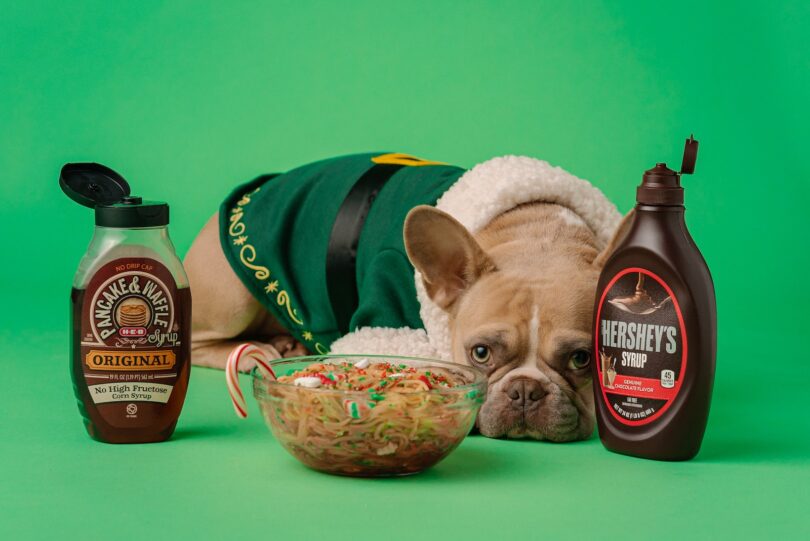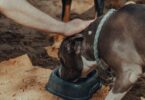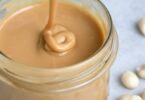The arrival of a puppy into your home can be exciting however, it also requires some preparation. Selecting a dog bed and toys, a collar leash, and choosing the right name for your new four-legged family member are just a few of the initial choices pet owners must make. Another crucial decision is selecting the best puppy food so that your puppy is getting the right nutrition during their growth (way too fast). Every puppy has different nutrition requirements based on factors like breed, size as well as general health, and way of life. We’ll go over these subjects throughout this piece, but be sure to consult a specialist in pet care to ensure you’ve picked the most suitable diet for the puppy you have chosen.
Can puppies take pet food that is an adult? Puppy vs dog nutrition
Puppy food is made to meet the specific needs of a puppy. These needs are different from those of an adult dog or senior dog. For instance, puppies typically require higher calories than dogs in adulthood due to the fact that they require more energy. So, puppy food contains higher calories per bite and is packed with nutrients because of their tiny stomachs, which don’t permit them to consume the same amount as adult dogs. Because most puppies need to consume a small amount of food every day, their food is a good source of protein and amino acids, as well as fats and minerals puppies, require to develop.
The Association of American Feed Control Officials (AAFCO) regulates the production of dog food and sets the standards for healthy pet food. If a food item is to be classified as puppy food, it should have a protein content of 22 percent (compared to the 18% required in adult food for dogs). In general, AAFCO ensures that pet food is a “complete and balanced” diet according to the pet’s age stage. As per AAFCO, “complete” means that the dog’s food is a complete source of nutrients, while “balanced” means the nutrients are in the ratios recommended by AAFCO. 1 All AAFCO-certified puppy food must be clearly marked as food specially designed for puppies. It should also have a nutritional adequacy declaration included on the label that ensures that the food is healthy and safe and suitable for the puppy.
What is the best time to transition between adult and puppy what is the best way to feed your dog?
There isn’t a specific time (human or puppy years) that indicates that your puppy is at the point of transitioning towards adult food for dogs. As a rule of thumb, it is not recommended to switch to adult-sized dog foods until the puppy is around eighty percent of the anticipated adult size. For small dogs, this happens earlier, at 9 or 10 months; for medium dogs at around 12 months. For large breeds of dogs, this is not until between 12 and 16 months old. In addition, puppies of large breeds are advised to eat puppy food designed for large breeds as larger dogs are at a higher risk of developing orthopedic diseases. 2 That’s why the food that is designed for large breed puppies tends to be lower in calcium, fat, and phosphorus to prevent growth from becoming too fast. 3 Switching food intake should be gradual as abrupt changes in food could cause an upset stomach (and upset puppies).
It may not be always easy to determine your puppy’s adult size or not be certain of the specific type of dog your puppy is. Your vet will be capable of helping you determine the best time to switch your puppy to adult food. Although it could take some intuition, it’s crucial to change between puppy and adult dog food since adult dogs don’t require the same amount of calories as puppies, and feeding puppies food to a dog that is an adult will result in an unhealthful weight increase.
Scraps from the table to feed your dog Do or don’t?
The most frequently asked question to pet owners is whether or not to feed food from humans to canine family members. It is difficult to avoid the smug look of your dog at the table. Table scraps may not necessarily be bad for adult dogs when used in moderate amounts, extra care must be taken to not feed humans food to puppies. One reason is that feeding table scraps to your puppy can result in bad behaviors and can cause your dog to always expect human food. Furthermore, puppies have extremely sensitive digestive systems, and eating human food can cause upset puppies’ stomachs. Additionally, since puppies have their own nutritional requirements and requirements, food from humans will not offer the nutrients needed for your puppy’s growth to be an ideal dog.
Additionally, you should not give your puppy goat’s milk or any human formula for babies. The puppies are typically weaned around the age of four weeks and given gruel (a mix of milk replacer and puppy food that has been soaked) since dry dog food is slowly introduced as babies lose teeth. At eight weeks of age, pups don’t require milk, however, when you do give the milk your pup needs, be sure you utilize a milk replacement formula designed for puppies and not the kind that humans drink.
The most delicious puppies’ treats. But how do you pick the right puppy snacks for your puppy?
Puppy dogs deserve treats to reward good behavior or simply for being adorable. But, treats designed for adult dogs aren’t necessarily appropriate for puppies. One reason is that a puppy’s teeth may not be fully developed, and therefore chewing on hard food can harm the teeth of a puppy. Instead, offer your puppy soft and tender treats. Ideally, smaller-sized treats are ideal for puppies with small mouths and tiny puppy stomachs. A healthy human diet for puppies includes small pieces of apples or carrots however, many dog owners are aware that grapes can be harmful to dogs. Do not give your puppy bones, even if your puppy is currently teething. Bones contain very little nutritional value and could cause severe damage to the developing digestive systems. Instead, offer your puppy chew toys in order to satisfy his desire to chew.
Be aware of moderation for maintaining healthy digestion and weight gain as your puppy expands. It is also important to ensure that everyone in the family is aware of the number of treats your puppy gets throughout the day. This is because puppies are extremely attracted to treats and may request them from several family members, which then results in overeating.









Leave a Comment